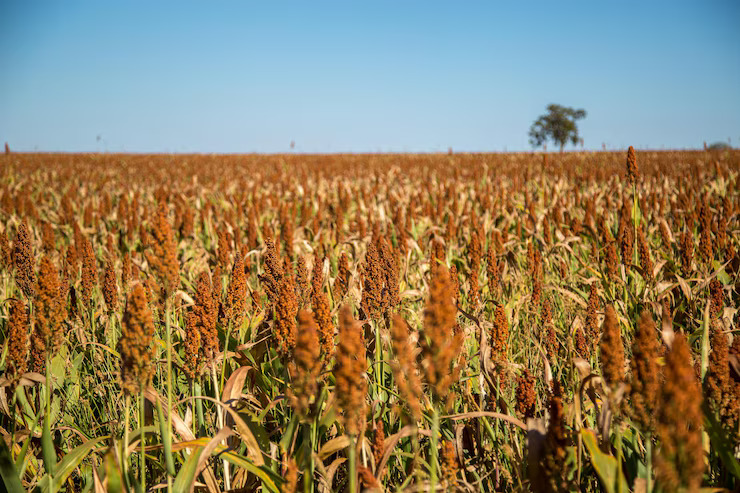Sorghum has steadily gained popularity in South Africa due to its drought-resistant nature, nutritional value, and growing demand across food and beverage industries. For smallholder and commercial farmers looking to sell their sorghum profitably, identifying the best markets is crucial. Fortunately, South Africa has a diverse network of local and regional markets where sorghum sellers can thrive.
The most accessible and immediate outlets for many farmers are local informal markets. These include roadside stalls, town centre markets, and community trading areas in provinces like Limpopo, North West, Mpumalanga, and Eastern Cape. In these markets, sorghum is sold either in bulk or packaged for individual household use. Buyers typically include informal traders, small-scale processors, and households that use sorghum flour for porridge or traditional brewing.
Agro-processing companies form another major market for sorghum. Large food manufacturers like Tiger Brands and Pioneer Foods often require sorghum for producing breakfast cereals, malt beverages, and gluten-free flours. Farmers who can meet quality standards and supply in bulk stand a good chance of securing contracts with these companies. These processors usually source sorghum through supply chains coordinated by cooperatives or through tenders issued by procurement departments.
Brewery companies, particularly those specialising in traditional African beers, represent an important market segment. Brands like United National Breweries and smaller craft brewers source white or red sorghum as a primary ingredient. These buyers are interested in clean, well-dried sorghum with minimal contamination. Farmers or cooperatives looking to tap into this market must ensure compliance with strict quality standards and be ready for consistent delivery volumes.
Export markets are becoming increasingly attractive for South African sorghum producers. Countries like Botswana, Zimbabwe, and Namibia have shown a growing demand for South African-grown sorghum due to proximity and trade relationships under SADC (Southern African Development Community). Exporters looking to enter these markets need to register with the Department of Agriculture, Land Reform and Rural Development (DALRRD) and ensure compliance with export regulations, including phytosanitary certification and quality grading.
Online agricultural marketplaces are also gaining ground as efficient selling platforms. Websites like HelloChoice, FarmSol, and AgrigateOne offer digital trading spaces where farmers can list sorghum for sale and connect with verified buyers, ranging from grain traders to agro-processors. These platforms often provide logistical support, secure payment options, and better price visibility, making them ideal for tech-savvy farmers and cooperatives.
Farmers’ cooperatives and associations can also act as collective markets for selling sorghum. By pooling produce, farmers can negotiate better prices, access bulk buyers, and reduce transport costs. In provinces like Free State and Gauteng, cooperatives have been successful in securing contracts with government feeding schemes and private food manufacturers. Joining or forming a well-managed cooperative opens more stable and higher-value market opportunities.
In urban centres like Johannesburg, Pretoria, Durban, and Cape Town, there is increasing demand for organic and health-focused sorghum products. Retailers and specialty health stores stock sorghum flour, puffed sorghum, and sorghum snack bars. Farmers can collaborate with small processors or create their own product lines to enter these niche, high-value markets.
To maximise returns, sorghum sellers in South Africa must also pay close attention to timing and market trends. The highest prices are typically offered just before planting season or during shortages caused by droughts or reduced supply. Staying informed through agricultural commodity bulletins, trade expos, and farmer forums helps sellers plan harvest and delivery schedules more strategically.
In conclusion, South African sorghum farmers have a wide array of market opportunities ranging from local informal outlets to large agro-processing companies and export buyers. Leveraging cooperatives, digital platforms, and value-added processing can further increase profitability. With growing demand and expanding uses for sorghum, tapping into the best markets can turn this resilient crop into a thriving business venture.







